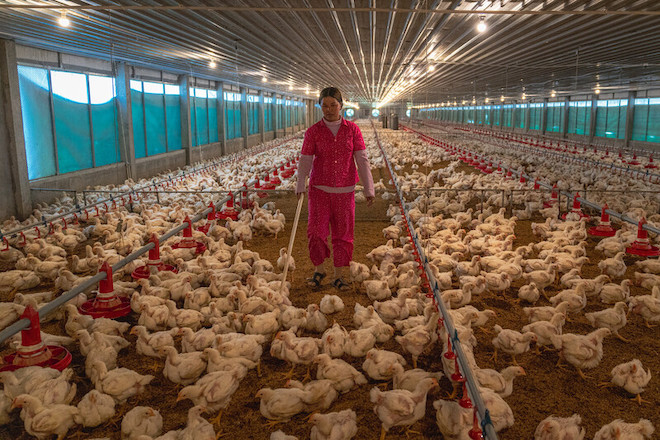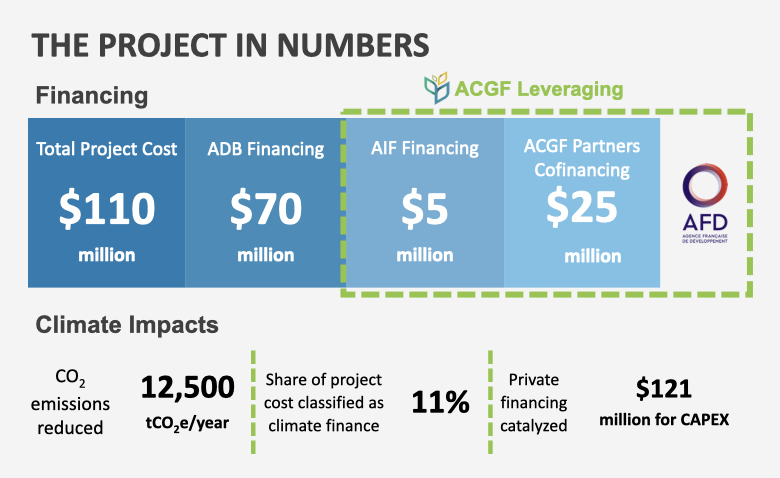
![]() ISSUE: Limited value addition to agriculture with poor access to finance and weak value chain links and farm-to-market road network.
ISSUE: Limited value addition to agriculture with poor access to finance and weak value chain links and farm-to-market road network.
Cambodia has a narrow economic base dominated by agriculture, construction, garments, and tourism. Given the large rural population (76.2% of the total population), the government continues to support agriculture as a priority sector, promoting agro-based industrial development as a driver of economic diversification. Cambodia’s value chain links are still nascent except for rice and a few other products led by large international agribusinesses, and most agro-enterprises cannot maximize their operation because of the difficulty in sourcing raw materials of sufficient quality and volume from small, fragmented farmers.
Competitive agricultural value chains and agribusiness operations require efficient transportation and infrastructure systems, particularly rural roads and the links to provincial and national roads that connect rural areas with the main urban centers and marketplaces. However, the condition of rural roads in Cambodia is still poor, with an average of only 5% of the rural roads of the project provinces paved. Additionally, credit to agriculture and agribusinesses together accounted for only 9.4% of formal finance in Cambodia in 2018, and access to finance is the major bottleneck for Cambodian agribusinesses.
![]() SOLUTION: Facilitate investment and linkages among key actors of selected agricultural value chain.
SOLUTION: Facilitate investment and linkages among key actors of selected agricultural value chain.
The Agricultural Value Chain Competitiveness and Safety Enhancement Project was approved for financing by ADB in November 2020. It will strengthen value chains of competitive agricultural products (cassava, mangoes, cashew nuts, vegetables, and native chicken) in the provinces of Kampong Cham, Kampong Thom, Oddar Meanchey, Preah Vihear, Siem Reap, and Tboung Khmum. The project will (i) facilitate access to credit for agro-enterprises and agricultural cooperatives; (ii) promote viable market links among agro-enterprises and agricultural cooperatives and enhance food safety and quality; and (iii) improve farm-to-market connectivity. The project will benefit 230 agricultural cooperatives (about 27,000 households) and about 50 agribusinesses in the project areas, and the number of beneficiaries will be expanded through intermediary financing.
![]() HOW DID THE GFH AND ACGF HELP?
HOW DID THE GFH AND ACGF HELP?
The ACGF, managed by SERD’s GFH, was involved in the project from the preparation phase. The ACGF provided support through technical assistance on green assessment and financing structuring to map potential agribusiness value chains, identify best green and resource efficient practices and technologies, and analyze and present options to introduce and pilot green and innovative parameters, and link these to financing terms under the participating financial institutions’ pipeline.

ACGF = ASEAN Catalytic Green Finance Facility; ADB = Asian Development Bank; AFD = Agence Française de Développement; AIF = ASEAN Infrastructure Fund; CAPEX = capital expenditure; GFH = Green Finance Hub; SERD = Southeast Asia Department; tCO2e = tons of carbon dioxide equivalent.

